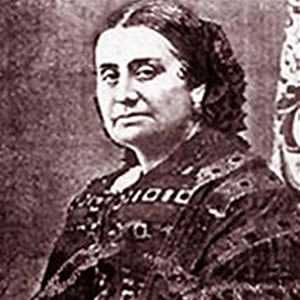Juana de Vega facts for kids
Juana de Vega (1805-1872) was an important Spanish writer and activist. She believed in ideas that promoted more freedom and rights for people. She also served in the royal court as the Camarera mayor de Palacio (a high-ranking lady-in-waiting) to Queen Isabella II of Spain from 1841 to 1843. Juana de Vega was married to a famous general named Francisco Espoz y Mina. She is remembered for her writings, including her memoirs and novels, and for her strong support of liberal causes.
Contents
Early Life and Family
Juana de Vega was born in A Coruña, Spain, in 1805. Her family was well-known and respected. From a young age, she showed a keen interest in learning and social issues. Her upbringing likely shaped her strong beliefs in freedom and justice.
Marriage to a Hero
In 1821, Juana married Francisco Espoz y Mina. He was a very famous general and a hero in Spain. General Mina was known for fighting against Napoleon's invasion and for supporting liberal ideas. Their marriage connected Juana even more deeply to the political movements of her time.
A Voice for Change
Juana de Vega was not just a writer; she was also a dedicated activist. She used her influence to support liberal causes. This meant she wanted more rights and freedoms for ordinary people. She believed in a government that protected individual liberties.
Helping Others
Juana was very active in helping people. She worked to improve education and support those in need. During times of war or political unrest, she often helped soldiers and their families. Her actions showed her deep care for her country and its people.
Serving the Queen
From 1841 to 1843, Juana de Vega held an important position in the royal palace. She was the Camarera mayor de Palacio for Queen Isabella II. This role meant she was the chief lady-in-waiting. She was in charge of the queen's personal staff and daily life. This position gave her a close view of the royal family and the politics of Spain.
Her Writings
Juana de Vega was a talented writer. She wrote several novels and her own memoirs. Memoirs are like a personal diary or story of someone's life. Her writings often reflected her liberal views and her experiences. They give us a look into the society and politics of 19th-century Spain.
Legacy and Impact
Juana de Vega passed away in 1872. She left behind a legacy as a brave writer and activist. She showed that women could play a big part in politics and social change. Her work helped shape the ideas of freedom and progress in Spain.
See also
 In Spanish: Juana de Vega para niños
In Spanish: Juana de Vega para niños
 | Valerie Thomas |
 | Frederick McKinley Jones |
 | George Edward Alcorn Jr. |
 | Thomas Mensah |


